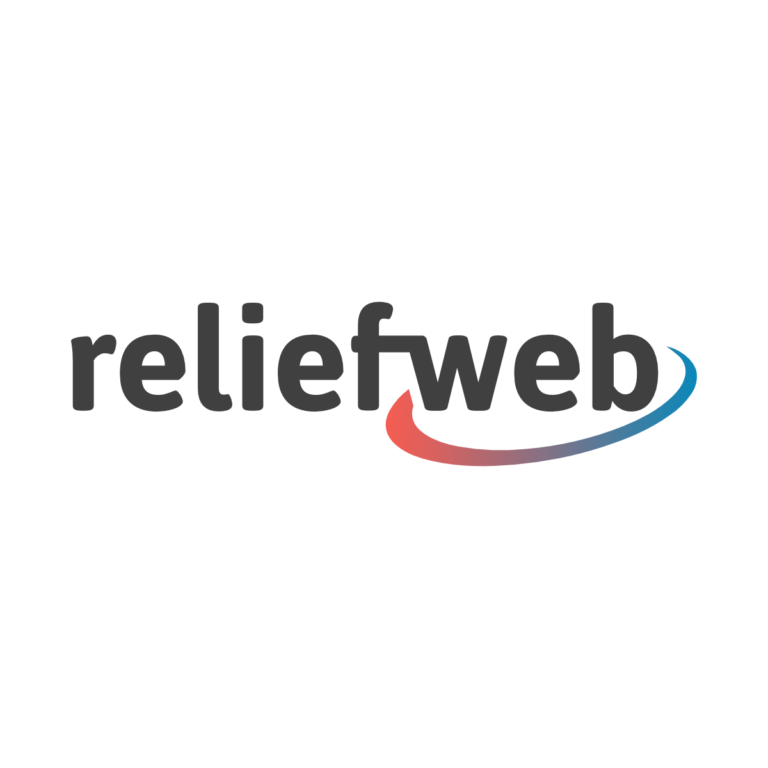Doctors without Borders/Médecins Sans Frontières (MSF) is an international medical humanitarian organization determined to bring quality medical care to people in crises around the world, when and where they need regardless of religion, ethnical background, or political view. Our fundamental principles are neutrality, impartiality, independence, medical ethics, bearing witness and accountability.
The Stockholm Evaluation Unit (SEU), based in Sweden, is one of three MSF units tasked to manage and guide evaluations of MSF’s operational projects, and works primarily with Operational Centre Brussels. For more information see evaluation.msf.org.
Subject/Mission: Evaluation of MSF’s Field ReCentralization (readvertisement)
Starting date: August 2022
Duration: Final report to be submitted by December 2022
Terms of Reference: https://evaluation.msf.org/evaluation-msfs-field-recentralization-programme
Requirements:
Interested applicants should submit:
1) A proposal describing how to carry out this evaluation (including budget in a separate file),
2) CV(s), and
3) a written sample from previous work
Special considerations:
The evaluation will require visits to some of the projects for on-site interviews.
Background
Médecins Sans Frontières (MSF) is one of the world’s largest medical humanitarian organizations. Operational Centre Brussels (OCB) is one of six Operational Directorates through which MSF manages operations and runs over 100 projects on an annual basis across the world. Traditionally, OCB’s social mission, its medical operational projects, has been managed by a national coordination team, including a head of mission (HoM), medical coordinator (MedCo), but also specific functions coordinating the contribution of the support departments (supply, logistics, finance, human resources, etc.). On the project level, a set of coordinators – including the project coordinator (PC) and project medical referent (PMR) – manage the project. These positions are mainly filled by internationally mobile staff, though in some larger missions, deputy positions can be recruited nationally. In Brussels, cells (units) within the Operations Department are structured based on a division of geographic areas (countries) to follow the missions. Other OCB-based departments provide direct support to the cells and missions, through staff placed directly in the cells or by working closely with the cells, missions, and projects.
By calling for a reduction in bureaucracy and wanting to strengthen decision-making autonomy as close as possible to the patient, MSF-OCB Strategic Orientations and the Operational Prospects 2020-2023 seek to place the patient and population at the center of its medical activities. As an integral part of accomplishing this strategic ambition, MSF-OCB launched a change management program called Field Recentralization (FrC Program or the Program) in 2019. The program assumes that it can increase the impact of OCB’s medical-humanitarian operations by moving decision-making as close as possible to the medical-humanitarian act and its beneficiaries.
The FrC Roadmap (2018) describes how years of growth, particularly at headquarter level rather than in the countries where projects are being implemented, and the continuous development of rules and guidelines, has affected the projects’ ability to act, making it increasingly dependent on HQ for decision-making and implementation. The program aims to increase the autonomy of the project staff and ensure that knowledge is accessible, and support is adapted to their needs. By addressing elements including: the projects’ autonomy, responsibility, accountability, agility, and decision-making capacity, FrC wants to “re-balance the organization’s centre of gravity by giving the field back the ability to regain autonomy and by redefining the scope of responsibilities of the projects” (FrC program document).
The program document includes a Theory of Change (ToC) with an overarching goal: “Decision making as close to medical-humanitarian act & beneficiary as possible” and the following sub-objectives:
- Stimulated and empowered quality in medical humanitarian operations,
- Speed & Reactivity enabled,
- Get out of “one-size-fits all” mentality,
- Knowledge & Support is adapted to the project’s needs,
- De-standardised models and systems,
- Project Teams are given more Autonomy to fulfil objectives, and
- Project Positions are filled by capable & competent + motivated people.
FrC started in Southern Africa in 2019, and in Central Africa in 2020. In both regions, changes were implemented in the projects in terms of staffing (roles and responsibilities, authority), in the coordination teams of the region and ultimately at the cell level. In the initial phase, the FrC team worked closely with projects in Southern Africa (SnA), establishing country and regional support teams and implementing several new processes, which sought to allow MSF-OCB to end the support of the cell and gradually transform the national coordination in the countries (where projects are being implemented).
Cells 1 and 5 gradually stopped its support to the region and Regional Support Teams (RST) were set up in the region with core components based in MSF’s SnA section in Johannesburg (South Africa) and in the MSF Kinshasa (DRC) office. It aims to be enlarged to other regions in the coming years, though the practical steps are not dictated. This evaluation will cover two phases of the program’s work to date (SnA and CA) recognizing that it should be adapted to the progresses of the different phases. SnA includes projects in South Africa, Mozambique, and Zimbabwe. CA includes Democratic Republic of Congo, Burundi, Cameroon, and Central African Republic.
Purpose and Intended use
This evaluation aims to provide an account of the FrC program from the root cause analysis[1] and the strategic design to the implementation and results. It should generate a deeper understanding of the effects (positive and negative) at different levels of the organization including its ability to deliver on its medical humanitarian objectives.
It is intended to provide the organization with an improved understanding of the programme’s objectives, progress, challenges, and results and to help management identify areas for future adaptations, both for the sake of looking back and looking forward (to additional roll out).
The program is currently being implemented in two regions (Southern Africa and Central Africa). It was launched and has been implemented under different conditions and preconditions. It is likely that the evaluation will have to look at the two contexts separately to draw conclusions as to the program’s value.
EVALUATION CRITERIA AND QUESTIONS
The evaluation seeks to assess 1) what type of change is happening and for who, at what levels of the organization and under what circumstances and 2) where we are seeing the desired positive change, and where we are seeing unintended or negative change.
-
How well does the program, in its design, respond to the identified need/issue/problem?
- How well does the program design address the root causes? Is it still the right solution?
- Has it been adapted to the context in which it is implemented?
- Has the program been able to adapt to changes in the context, including in response to its own internal learning and increased understanding?
-
How well implemented is the program?
- What outcomes have been achieved and how valuable are they: for the patients? For OCB project-based staff? For the OCB department (including Operations)?
- Do the outcomes contribute to addressing the root causes for launching the program?
- What opportunities and constraints have emerged throughout the course of implementation? How was the program able to overcome constraints and capitalize on opportunities?
-
Which parts or aspects of the program generate the most valuable outcome for the time, money and effort invested?
EXPECTED DELIVERABLES
The inception report ought to include a detailed evaluation proposal including the methodology and evaluation protocol, developing further what has been proposed in the proposal. MSF attributes great value to the inception stage, particularly when ensuring shared understanding of a complex evaluand is key.
- Regional debriefs in connection to data collection
Debriefing with the regional teams and project teams, in connection to the project visits. It is not expected that the evaluators will have to visit all seven project countries.
The draft ER ought to answer to the evaluation questions and the evaluation’s stated purpose with the intended use in mind, basing this on analysis, findings, and conclusions – and if relevant – lessons learned and/or recommendations.
As part of the report writing process, a working session will be held with the commissioner, consultation group members and SEU evaluation manager. The evaluator will present the preliminary findings, collect feedback and facilitate a discussion on recommendations (either to co-create recommendations or, if already developed, their feasibility).
The final report will have addressed feedback received during the working session and written input from the feedback loop.
- Presentations of the Final Evaluation Report
- A presentation and discussion of the final report to the Comité des Directeurs (CODIR) in Brussels, in person or virtual.
- A presentation of the final report to a general OCB audience in the form of a webinar.
The key deliverables (inception report, draft/final report) will be processed through a feedback loop, collecting input from the consultation group (see below, Practical Implementation of the Evaluation). Each deliverable is reviewed by the SEU and endorsed by the evaluation’s commissioner.
TOOLS AND METHODOLOGY PROPOSED
While this is at the discretion of the evaluator(s), it is likely that the evaluation will have to assess the two regions separately and then look to analyze the FrC program transversally.
While the original program document contains a theory of change, this ought to be reviewed at the start of the program and tested for viability, so to ensure it provides an accurate basis for the evaluation. The evaluation should be mixed methods and incorporate both the routine monitoring data (project and medical data) and primary data collected as part of the evaluation.
In addition to the initial evaluation proposal submitted as a part of the application, a detailed evaluation protocol should be prepared by the evaluators during the inception phase. It will include a detailed explanation of proposed methods and its justification based on validated theories. It will be reviewed and validated as a part of the inception phase in coordination with the SEU.
RECOMMENDED DOCUMENTATION
- MSF and OCB strategic documents, including the Strategic Orientations, Operational Prospects, Medical Department Strategy
- FrC Program documents, including plans and background papers
- Previous assessments (capitalization 2020, external monitoring exercise 2021, Central Africa consultations)
- Project plans (including HR set-up and changing needs), monitoring, evaluation, and reporting (reports, monitoring data, medical data) from the project sites within the scope of the evaluation
PRACTICAL IMPLEMENTATION OF THE EVALUATION
Number of evaluator(s): Flexible
Timing of the evaluation: Start: August 2022
Inception report: September
Data collection: October/November
Finish: Latest December 2022
The SEU (as evaluation managers) has established a consultation group (CG) to accompany this evaluation. The CG is led by a commissioner. They have contributed to finalizing this ToR.
PROFILE/REQUIREMENTS FOR EVALUATOR(S)
The evaluation requires an individual or team of individuals who can demonstrate competencies in the following areas.
- Proven and relevant evaluation competencies[2] to carry out an evaluation of a complex, multi-country program.
- Specific technical competencies
- Humanitarian strategic planning and program management
- Organizational development and change management
- Fluency in English (spoken and written), professional proficiency in French.
- Good knowledge of MSF, its organization, operations and guiding principles, is a strong asset.
- Competency to analyze complex contexts.
- A central element of the program that is being evaluated relates to power dynamics; consideration for how to best interpret and analyse this ought to be considered in the presentation of the evaluator(s)’ profile and competencies.
[1] The intention is not to redefine the root causes, but rather to consider how the root cause analysis was done as a precondition for sound program design.
[2] The SEU references SEVAL’s professional competencies, available at https://www.seval.ch/en/standards-competences/competencies/.
How to apply
APPLICATION PROCESS
The application should consist of a technical proposal, a budget proposal, CV, and a previous work sample. The proposal should include a reflection on how adherence to ethical standards for evaluations will be considered throughout the evaluation. In addition, the evaluator/s should consider and address the sensitivity of the topic at hand in the methodology as well as be reflected in the team set-up. Offers should include a separate quotation for the complete services, stated in Euros (EUR). The budget should present consultancy fee according to the number of expected working days over the entire period, both in totality and as a daily fee. Travel costs, if any, do not need to be included as the SEU will arrange and cover these. Do note that MSF does not pay any per diem.
Applications will be evaluated on the basis of whether the submitted proposal captures an understanding of the main deliverables as per this ToR, a methodology relevant to achieving the results foreseen, and the overall capacity of the evaluator(s) to carry out the work (i.e. inclusion of proposed evaluators’ CVs, reference to previous work, certification et cetera).
Interested teams or individuals should apply to evaluations@stockholm.msf.org referencing FRCEV no later than Sunday 7th August 2022, no later than 23:59CET. We would appreciate the necessary documents being submitted as separate attachments (proposal, budget, CV, work sample and such). Please include your contact details in your CV.
Please indicate in your email application on which platform you saw this vacancy.









